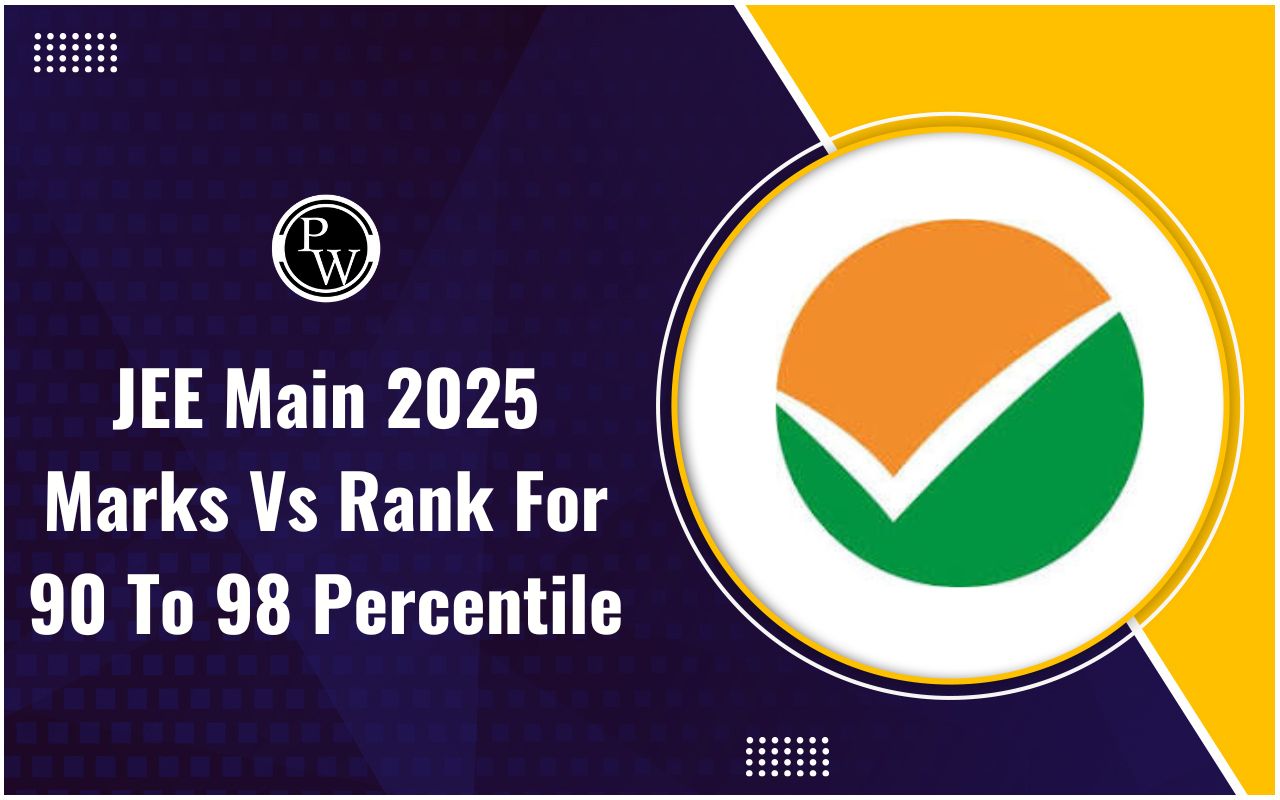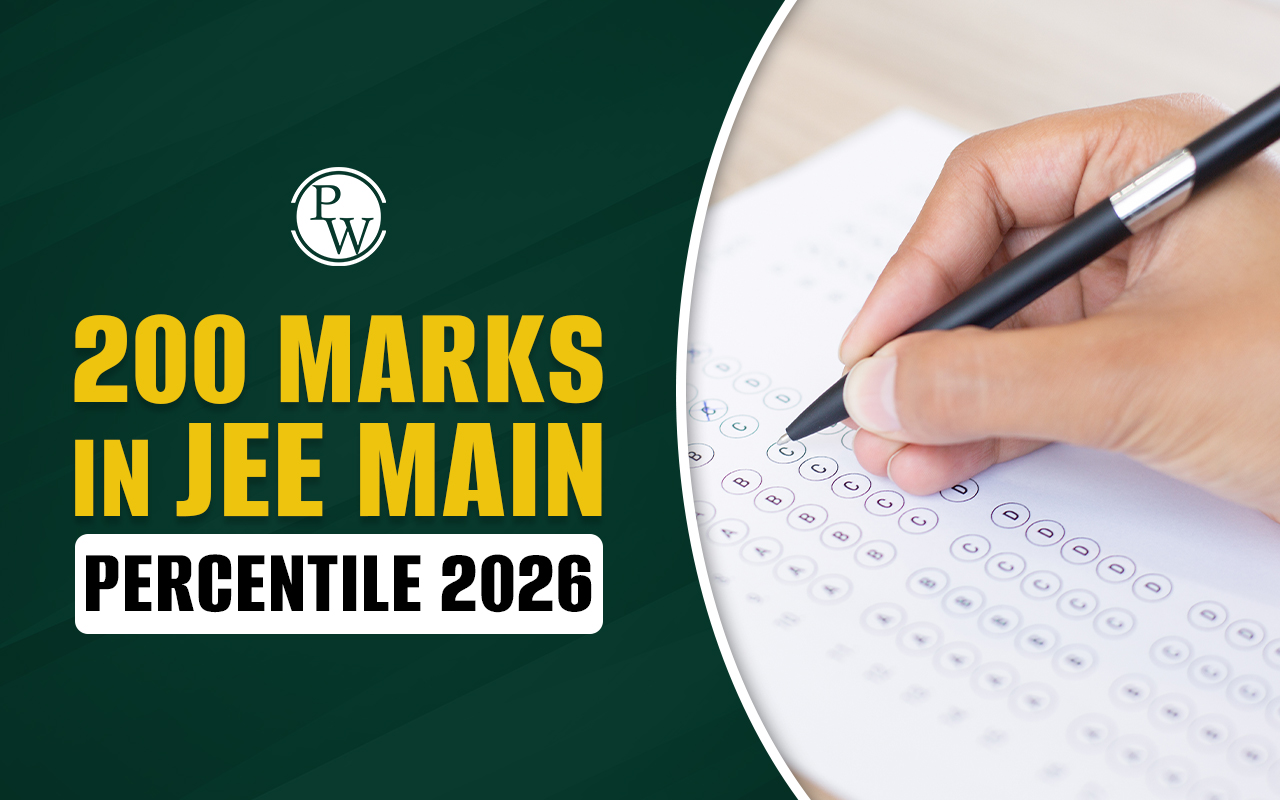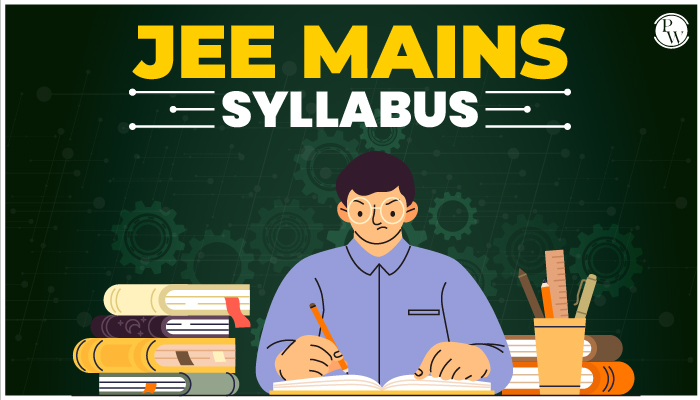How Many Questions Are There in JEE Mains: The Joint Entrance Examination (JEE) Main is one of the most competitive national-level entrance examinations held by the National Testing Agency (NTA). It is a gateway for admission to top engineering and architecture colleges like NITs, IIITs, and CFTIs. One of the most common questions asked by applicants is: "How many questions are there in JEE Mains?"
This is an important question, as the knowledge of the total number of questions in JEE Mains has a direct impact on a student's study strategy, subject-wise time management, and speed with accuracy under pressure. We present a detailed analysis of the number of questions in JEE Mains in terms of paper-wise pattern, sectional arrangement, and optional question policy.
Also Check:
How Many Questions Are There in JEE Main 2026 Exam
Before delving into the subject-wise breakdown, here’s a concise overview of the JEE Main 2026 examination format:
|
How Many Questions Are There in JEE Main 2026 Exam? |
|
|
Particulars |
Details |
|
Exam Name |
Joint Entrance Examination (JEE) Main |
|
Conducting Authority |
National Testing Agency (NTA) |
|
Exam Mode |
Computer-Based Test (CBT) |
|
Exam Sessions |
Two sessions – January & April 2026 |
|
Number of Papers |
Paper 1 (B.E./B.Tech) & Paper 2 (B.Arch/B.Plan) |
|
Paper 1 Subjects |
Physics, Chemistry, Mathematics |
|
Paper 2 Subjects |
Mathematics, Aptitude Test, Drawing/Planning |
|
Total Questions in Paper 1 |
75 questions (25 per subject) |
|
Total Marks in Paper 1 |
300 marks |
|
Optional Questions in Paper 1 |
None – All questions are mandatory |
If you are wondering how many questions in JEE Mains are asked overall or in each paper, the following sections explain that in detail.
Also check: JEE Main Previous Year Question Papers
Subject-wise Questions in JEE Main
Understanding the subject-wise distribution of questions in JEE Main is essential for targeted preparation. The total number of questions and their distribution vary depending on the paper a candidate is attempting — Paper 1 (B.Tech), Paper 2A (B.Arch), or Paper 2B (B.Plan). Each paper includes a different combination of subjects, section types, and marks.
Number of Questions in JEE Main Paper 1 and Paper 2
Below is the table showing the total number of questions asked in JEE Main Paper 1 (B.Tech), Paper 2A (B.Arch), and Paper 2B (B.Plan) to help candidates understand the exam structure more clearly.
|
Number of Questions in JEE Main Paper 1 and Paper 2 |
|||
|
JEE Main Paper |
Subjects Included |
Total Questions |
Total Marks |
|
Paper 1 (B.Tech) |
Physics, Chemistry, Mathematics (Each 25 Questions: Section A - MCQs & Section B - NAT) |
75 |
300 |
|
Paper 2A (B.Arch) |
Mathematics, Aptitude, Drawing Test |
77 |
400 |
|
Paper 2B (B.Plan) |
Mathematics, Aptitude, Planning-based Questions |
100 |
400 |
Enroll now for JEE Online Courses by PW
Number of Questions in Each Section of JEE Main
The table below shows the expected total number of questions in all papers of JEE Main 2026 (Paper 1, Paper 2A, and Paper 2B):
Total Questions in JEE Mains Paper-1 (BTech)
NTA is conducting Paper 1 Paper 1 is designed for B.E./B.Tech aspirants and consists of three core subjects: Physics, Chemistry, and Mathematics. Each subject includes a total of 25 questions. Refer to the table below for a detailed breakdown of the expected number of questions in JEE Main 2026 Paper 1 (B.Tech).
|
Total Questions in JEE Mains Paper-1 (BTech) |
|||
|
Subject |
Section A |
Section B |
Marks |
|
Mathematics |
20 |
05 |
100 |
|
Physics |
20 |
05 |
100 |
|
Chemistry |
20 |
05 |
100 |
|
Total |
75 |
300 |
|
-
Total Questions in JEE Mains Paper 1: 75
-
Total Number of Questions in JEE Mains (B.Tech): 75 (All are compulsory)
So, the no of questions in JEE Mains Paper 1 is fixed at 75, with no optional questions in the current pattern.
Total Questions in JEE Mains Paper-2A (BArch)
JEE Main Paper-2A is conducted for candidates applying to B.Arch courses. The question paper is divided as follows:
|
Total Questions in JEE Mains Paper-2A (BArch) |
|||
|
Question Paper Design |
Subject |
Number of Questions |
Marks |
|
Subject-wise distribution of Questions, Total Number of Questions, and Marks |
Part I: Mathematics |
20 (Section A) and 05 (Section B) |
100 |
|
Part II: Aptitude test |
50 |
200 |
|
|
Part III: Drawing Test |
02 |
100 |
|
|
Total |
77 |
400 |
|
- Total Question in JEE Mains Paper 2A: 77
The total no of questions in JEE Mains Paper 2A is slightly fewer compared to Paper 2B but includes a drawing component.
Total Questions in JEE Mains Paper-2B (BPlan)
NTA has announced that JEE Main Paper 2B, Paper 2B is conducted for admission to B.Planning programs. This paper includes planning-based questions in place of the drawing section. The table below provides an estimated subject-wise distribution of questions.
|
Total Questions in JEE Mains Paper-2B (BPlan) |
|||
|
Question Paper Design |
Subject |
Number of Questions |
Marks |
|
Subject-wise distribution of Questions, Total |
Part I: Mathematics |
20 (Section A) and 05 (Section B) |
100 |
|
Number of Questions, and Marks |
Part II: Aptitude Test |
50 |
200 |
|
Part III: Planning |
25 |
100 |
|
|
Total |
100 |
400 |
|
-
Total Number of Questions in JEE Mains Paper 2B: 100
-
Candidates must attempt all 100 questions.
Thus, if you’re searching for the total questions in JEE Mains Paper 2B, you should be prepared for a full-length paper with 100 questions and 400 marks.
How Many Attempts Are Allowed for JEE Main 2026
Number of Optional Questions in JEE Main
In the JEE Main 2025 B.E./B.Tech exam (Paper 1), the question paper contains a total of 75 questions from Physics, Chemistry, and Mathematics, equal to 300 marks. There are 25 questions each in Physics, Chemistry, and Mathematics, divided into two separate sections:
-
20 Multiple-Choice Questions (MCQs)
-
5 Numerical Value Questions (NVQs)
Unlike the previous pattern presented in earlier sessions, where numerical questions had optional attempts, the present JEE Main 2025 exam pattern doesn't provide any optional questions. All 25 questions for each subject are compulsory, and students need to attempt all of them to finish the paper.
Therefore, if you want to know how many optional questions JEE Main has, the reply is zero in the current pattern for B.E./B.Tech. The lack of optional questions means candidates have to prepare all the chapters of every subject thoroughly in order to attain high marks.
Aspirants are recommended, however, to always consult the most recent JEE Main 2026 information bulletin provided by NTA so that they remain updated in case any future changes are made.
How Many Questions Are There in JEE Mains FAQs
How many questions are there in JEE Mains Paper 1?
How many questions in JEE Mains Paper 2B (B.Plan)?
Is there any optional question in JEE Main 2026?
What is the no of questions in JEE Mains for mathematics?
Is the number of questions JEE Main administers the same every year?












